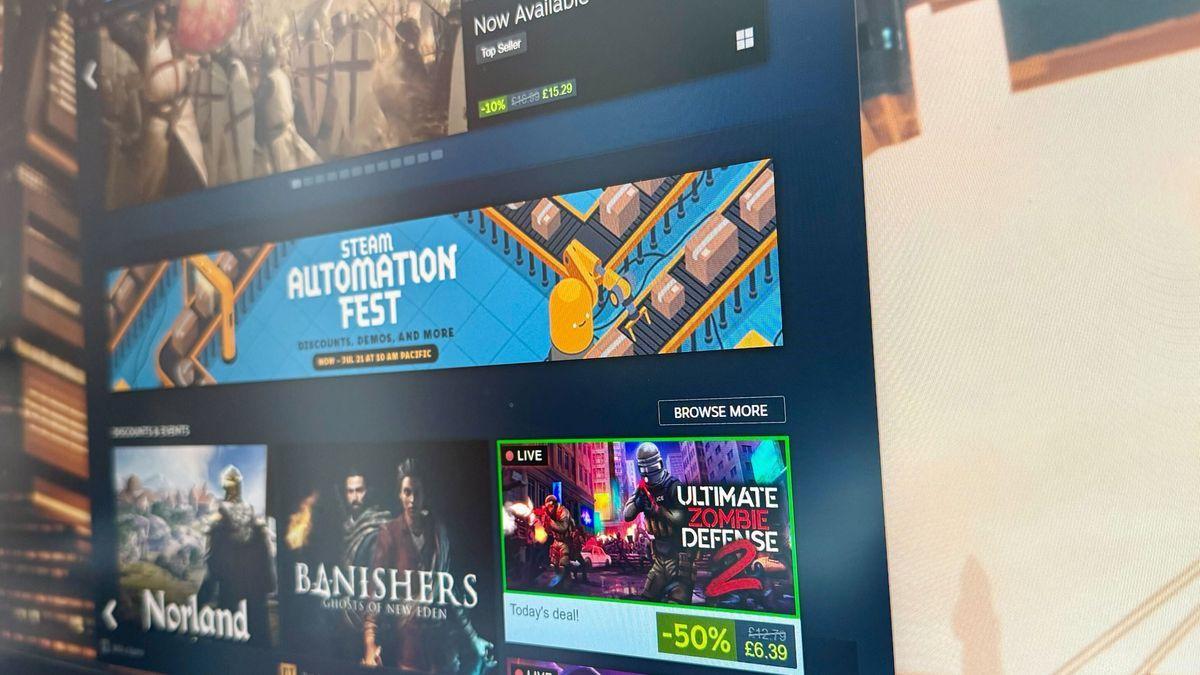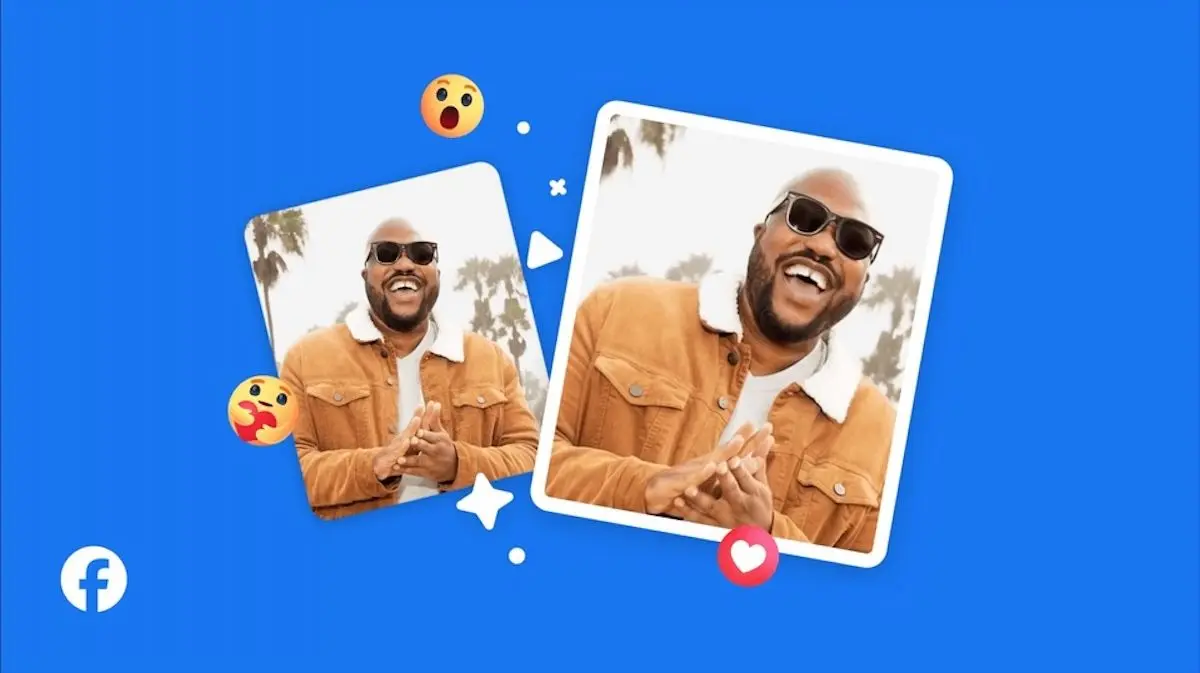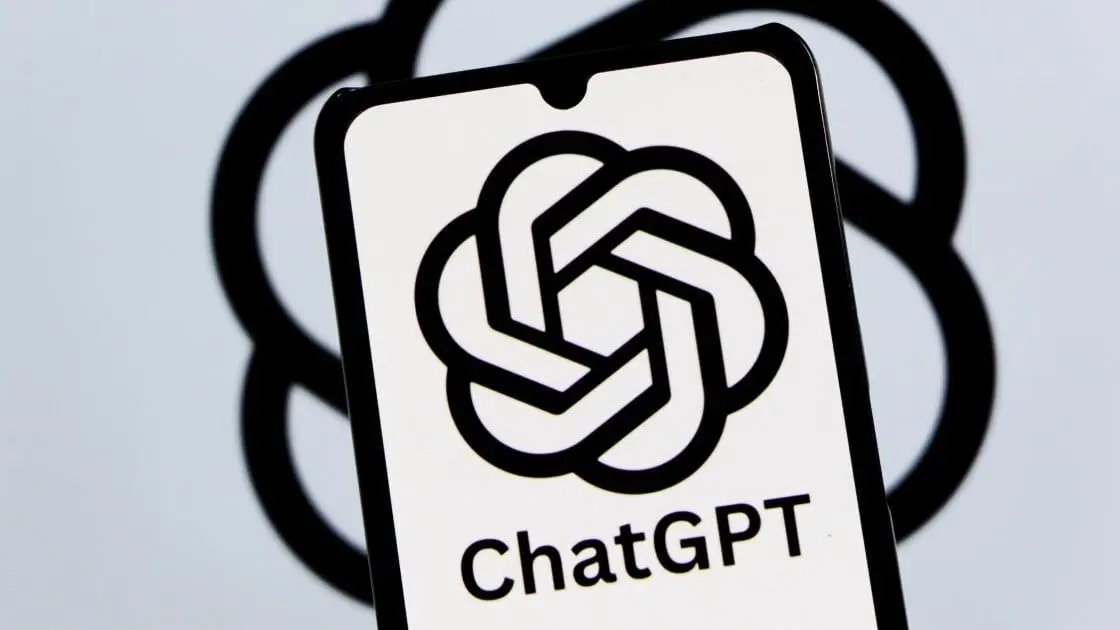Netflix Pivots to AI-Driven Game Development After Shuttering AAA Studio
8 Sources
8 Sources
[1]
After closing its AAA games development studio, Netflix Games VP transforms into the VP of GenAI for Games and the gobbledygook must flow: 'a creator-first vision... with AI being a catalyst and an accelerant'
In October 2022 Netflix announced an escalation in its gaming ambitions with the internal studio Team Blue, making some eye-catching hires from across the AAA industry including Chacko Sonny (ex-Blizzard) as studio head, Joseph Staten (ex-343 Industries) and Rafael Grassetti (ex-Sony Santa Monica). Mike Verdu was VP of Netflix Games and said they were out to "build the next big thing in gaming." Womp womp. Two years on, Netflix announced the closure of Team Blue without it having shipped anything of note, and the three big name hires mentioned above have all departed. But Mike Verdu remains, and has now become the VP for GenAI for Games at Netflix. And he wants you to know one thing: This all happened exactly as planned, OK, and generative AI is in fact a "once in a generation inflection point," which is also how I feel these days when I get out of bed too quickly. In a post on (where else) LinkedIn, Verdu says a whole lot without saying anything at all. In fact I wonder whether the wonders of generative AI may be behind the post, which is laden with out-of-context buzzwords and bereft of meaning. "This transformational technology will accelerate the velocity of development and unlock truly novel game experiences that will surprise, delight, and inspire players," says Verdu, or possibly his chatbot. "I am focused on a creator-first vision for AI, one that puts creative talent at the center, with AI being a catalyst and an accelerant." The great god AI will apparently "enable big game teams to move much faster," so it's a bit of a pity Netflix just shuttered its only big game team. Verdu says Netflix Games built "a robust internal game studio" (does he know?), is now a "world class publishing organization" (citation needed), and has "increased game engagement by multiples." Multiples of what, exactly: Nothing? Trailing clouds of glory, Verdu is "ready for the next big challenge after the raw primordial act of creation" and, what do you know, "GenAI is that next challenge." Verdu hearkens back to the simpler times of the 1990s, "when we saw a new game launch every few months that redefined what was possible," which as someone who played games in the 1990s I can tell you is a slight exaggeration. "We're back to those days of seemingly unlimited potential and the rapid pace of innovation." Are we? Verdu tuts at the naysayers: "Many view this technology with fear, but I am a game-maker at heart and I see its potential to unlock all of us, to create mind-blowing new experiences for players, to lift us to new heights." When people stop talking about what GenAI is going to create game-wise, and actually show off something it's created that is great, maybe I'll pay a little more attention. As it is the AI space remains one of overblown promises, questionable use cases, and sub-par output. But Verdu is "thrilled" regardless. As for the closure of Team Blue and the departures and Netflix looking like it's a bit clueless about everything, pshaw! "Pay no mind to the uninformed speculation in the media about the changes in Netflix Games," declares Verdu. "What you've seen over the last several months was actually a planned transition." Well that settles that then. Verdu is hardly alone in being a starry-eyed suit, it should be said, with nearly every major publisher investing heavily in AI of various kinds, though few are willing to get into how it will impact jobs in the industry beyond the dread word "efficiency." Some of those likely to be affected are at least getting organised around the issue, with the SAG-AFTRA voice actors' union is currently three months into a strike, hoping to secure better AI protections for performers in the industry. But there is no putting this particular GenAI back in the bottle. Verdu's grand visions of the future are nothing you haven't heard before, because there's now an entire industry of people just dedicated to extolling AI's potential and trousering as much of that lovely venture capital loot as they can. Perhaps the funniest thing about Verdu's post is it ends with a terribly generic image of a sci-fi city, which the credits show was generated by Microsoft's AI tools. It's weirdly bland, foregrounding a bucolic landscape contoured in ways that make no sense, dotted with farmsteads that jar with the gleaming metropolis in the distance, and riven-through with roads to nowhere. Who'd've thought?
[2]
Gamers roast Netflix's generative AI plans after it lays off human developers
Netflix appears to have just confirmed everyone's worst fears about generative AI in the creative sector. Two weeks after closing its AAA gaming studio Team Blue and laying off human developers, it's emerged that it's creating an AI game development studio in their place. Mike Verdu, formerly vice president of Netflix Games, is now vice president of genAI for games. In a post on LinkedIn accompanied by a generic-looking AI image of a dystopian cityscape blotting a rural landscape, he said he is "working on driving a 'once in a generation' inflection point for game development and player experiences using generative AI." But despite Verdu's promise of "a creator-first vision for AI" that "puts creative talent at the center, with AI being a catalyst and an accelerant", the timing doesn't look good, and people have been quick to point that out. Beyond the buzz phrases, Verdu doesn't give any concrete detail about what the the project involves or what it's working on, but he expresses optimism for the potential of AI game development. "Many view this technology with fear, but I am a game-maker at heart and I see its potential to unlock all of us, to create mind-blowing new experiences for players, to lift us to new heights," he writes. "Yes, we'll have to adapt and change, but when have we failed to meet that challenge as an industry?" But Verdu's announcement wasn't received with the warm round of applause he might have been hoping for. "Didn't you all just lay off a bunch of employees on your actual gaming division?," one person pointed out in the comments. "I struggle to see how any genAI product could ever be creator first. I sincerely hope your endeavor fails and you don't rip jobs away from real human beings that already make beautiful games so that you can live in some fantasy world where genAI games aren't derivative slop." "It's insane how far removed leadership of these initiatives are from the consumer base," another person wrote. "Games are not like other media; you can't just passively disassociate to games like some Netflix original slop running the background, you need to be engaged. There is a reason that the best games studio right now, possibly ever, is Rockstar Games and takes a decade of development to put out the next benchmark... I get this is all a scam for the boardroom boomers because they hear GenAI and clap like seals for mackerel but look at the game market right now; it's hard enough to sell good games to consumers, let alone push junk." "This is very sad for Netflix. Using AI for helping artists optimize boring tasks is one thing, but to steal artworks styles and call it art produced by AI is different thing. And while it's fine for homemade experiments, it's shocking how VPs of incredible firms pretend that this is okay. It's not. From where I come from as an artist, it's called fraud." The comments over on X followed a similar vein. "Gotta get that grift in before people realize it doesn't work to a production level product worth paying for. And if it did, then everyone could generate their own game which means yours is worthless in a sea of infinite supply," one person wrote. "Get hired! take their money! leave when it shuts down in tree years!" someone else suggested. Others are saying they will cancel their Netflix subscription. The response is another example that associations with generative AI art can still be highly toxic for brands. Transports for Ireland's AI Halloween art is another recent example that faced a backlash online.
[3]
Days after shutting its AAA game studio filled with former God of War and Overwatch talent, Netflix announces a "new initiative" powered by AI
Just days after reportedly closing its AAA game studio with industry-leading talent, Netflix is planning "truly novel game experiences" powered by generative AI. The news comes in the form of a LinkedIn post from Mike Verdu, the founder and previous vice president of Netflix Games and now the new VP of "GenAI for Games" at Netflix. "At long last, I am ready to talk about what I'm doing next: I am working on driving a 'once in a generation' inflection point for game development and player experiences using generative AI," reads Verdu's big reveal. This "transformational technology," as he says, will "accelerate the velocity of development and unlock truly novel game experiences that will surprise, delight, and inspire players." It's admittedly a bit alarming considering the company's recent studio closure and loss of talent like Overwatch executive producer Chacko Sonny and God of War Ragnarok art director Rafael Grassetti - but according to Verdu, it'll run on a "creator-first" system. "I am focused on a creator-first vision for AI," he writes, "one that puts creative talent at the center, with AI being a catalyst and an accelerant. AI will enable big game teams to move much faster, and will also put an almost unimaginable collection of new capabilities in the hands of developers in smaller game teams." Verdu also assures readers that the AI division at Netflix has been "planned" for some time now. "Pay no mind to the uninformed speculation in the media about the changes in Netflix Games," states the VP. "What you've seen over the last several months was actually a planned transition." While I can't say I feel better about the entire situation personally, I do wonder what direction "GenAI for Games" at Netflix will take - and how Verdu plans to make his so-called "dent in the universe" with AI as the division's lead.
[4]
Netflix Bullish on Gen AI for Games After Laying Off Human Game Developers
Netflix exec says Generative AI is a 'once in a generation' inflection point for video game development. A Netflix executive revealed that the company's video game division is investing in generative AI in order to "accelerate the velocity of development and unlock truly novel game experiences that will surprise, delight, and inspire players" just weeks after the company shut down its prestige game studio and laid off game developers. "At long last, I am ready to talk about what I'm doing next: I am working on driving a 'once in a generation' inflection point for game development and player experiences using generative AI," Mike Verdu, who is now VP, GenAI for Games at Netflix, said in a Linkedin post announcing his new title. "I don't think I've been this excited about an opportunity in this industry since the 90s, when we saw a new game launch every few months that redefined what was possible. It was an incredible time to be making games as talented creators showed all of us what the future looked like. Guess what? We're back to those days of seemingly unlimited potential and the rapid pace of innovation, which resulted in mind-blowing surprises for players every few months." As you might have noticed from your Netflix home screen, the company has been making a push into video games in recent years, allowing users to stream games and acquiring video game studios with the aim of developing Netflix exclusive games. One of its more ambitious plans for video games appeared to be its internal big budget video game studio known as Team Blue, which recruited veteran game developers who previously worked on Call of Duty, God of War, and Halo. That studio, as was first reported on Game File, was shuttered last month, resulting in 35 people laid off. "Pay no mind to the uninformed speculation in the media about the changes in Netflix Games. What you've seen over the last several months was actually a planned transition," Verdu wrote in his Linkedin post. What Verdu and Netflix plan to do at the intersection of generative AI and video game development is still unclear. Generative AI can be used to generate 3D models, concept art, voice performances, or in-game dialogue, and some game developers are already doing this. On the more experimental end, we're increasingly seeing prototypes for entire generative AI game engines that generate real-time 3D environments on the fly, though these seem still far from practical. As is the case wherever generative AI meets other creative fields, video game developers, artists, and voice actors have a lot of concerns about generative AI tools in game development since the technology is inherently derived from their human labor, and could end up displacing them and diminishing the medium. "I am focused on a creator-first vision for AI, one that puts creative talent at the center, with AI being a catalyst and an accelerant. AI will enable big game teams to move much faster, and will also put an almost unimaginable collection of new capabilities in the hands of developers in smaller game teams," Verdu said in his Linkedin post.
[5]
Netflix Focuses on AI-Generated Gaming After Shutting Down Internal Studio
Netflix is going all in on using generative AI to build games, weeks after the company shut down an internal studio focused on creating "AAA" games. On Sunday, Netflix executive Mike Verdu announced he'd been named VP of GenAI for Games. "At long last, I am ready to talk about what I'm doing next: I am working on driving a 'once in a generation' inflection point for game development and player experiences using generative AI," he said in a post on LinkedIn. "This transformational technology will accelerate the velocity of development and unlock truly novel game experiences that will surprise, delight, and inspire players," according to Verdu, who had been serving as VP for Netflix Games. The news may spark concern about Netflix using AI instead of human developers. In his post, Verdu said human creative talent will remain at the center of the game development process "with AI being a catalyst and an accelerant." "AI will enable big game teams to move much faster, and will also put an almost unimaginable collection of new capabilities in the hands of developers in smaller game teams," he said. Verdu argued that today's generative AI technology could help developers pump out new games on a monthly basis, like how the game industry did during the 1990s at Nintendo and Sega. "We're back to those days of seemingly unlimited potential and the rapid pace of innovation, which resulted in mind-blowing surprises for players every few months," Verdu said. Some companies have shown that generative AI can automatically create levels and character designs for a game, write never-ending dialogue for NPCs, or even run a game without using traditional computer code. Others, including Microsoft and EA, are embracing AI for game development. Nintendo appears to be taking a more cautious approach over concerns that generative AI might accidentally steal elements from existing titles. It's unclear whether games that rely heavily on generative AI will still be fun and popular. Netflix didn't immediately respond to a request for comment. But in his post, Verdu dismissed any speculation that the company is facing turmoil in its gaming divisions. "Pay no mind to the uninformed speculation in the media about the changes in Netflix Games. What you've seen over the last several months was actually a planned transition," he said.
[6]
Netflix Investing in Generative AI for Games After Closing Studios
Human staff have been the victim of recent layoffs over at Netflix as they begin to close down some of their game studios. This includes their triple-A development studio in Los Angeles, which was founded by Chacko Sonny, a former Overwatch Executive Producer. However, Netflix has decided to close this studio and has now admitted that the video game division of the company is investing in generative AI. This is supposedly to "accelerate the velocity of development and unlock truly novel game experiences that will surprise, delight, and inspire players." This will come like an extra kick in the teeth for those who were part of the layoffs and the studio closure. In a post on LinkedIn, Mike Verdu, the Vice President at GenAI for Games at Netflix, used the post to announce his new title. "I don't think I've been this excited about an opportunity in this industry since the 90s, when we saw a new game launch every few months that redefined what was possible. It was an incredible time to be making games as talented creators showed all of us what the future looked like. Guess what? We're back to those days of seemingly unlimited potential and the rapid pace of innovation, which resulted in mind-blowing surprises for players every few months." At the moment, it's not quite certain how 'good' the AI is that is being used in game development. When it comes to generative AI that's used in artwork, it's still very obvious when the pictures are AI. Whether it be due to weird hands or same-face syndrome, there's always a level of uncanny valley. Whether this kind of thing will translate over to games as well is something that we'll have to wait and see. Verdu's statement continues with, "Pay no mind to the uninformed speculation in the media about the changes in Netflix Games. What you've seen over the last several months was actually a planned transition," he says. Despite that, it doesn't make the fact that a studio has been shuttered and 35 people lost their jobs any better, especially if their plan is to replace their efforts with AI. At this point it's uncertain what the plan is for the use of generative AI in the video game department over at Netflix. There is a lot of possibility and potential for it, as generative AI game engines are coming out, and the AI can be used to create concept art, voice performances, in-game dialogue and much more. "I am focused on a creator-first vision for AI, one that puts creative talent at the center, with AI being a catalyst and an accelerant. AI will enable big game teams to move much faster and will also put an almost unimaginable collection of new capabilities in the hands of developers in smaller game teams," says Verdu. What are your thoughts on the use of AI in the games industry? Do you think this move will work out for the Netflix game department? Let us know in the comments.
[7]
Mike Verdu of Netflix Games leads new generative AI initiative
Mike Verdu, who had largely spearheaded Netflix's foray into gaming in recent years as VP of Netflix Games, announced on LinkedIn a new role within Netflix Games leading the company's effort to capitalize on generative AI. The role, Vice President of GenAI for Games, focuses on using generative AI for the next step in creating games with big teams. "GenAI is that next challenge. I don't think I've been this excited about an opportunity in this industry since the 90s, when we saw a new game launch every few months that redefined what was possible," Verdu writes in his LinkedIn post. "It was an incredible time to be making games as talented creators showed all of us what the future looked like. Guess what? We're back to those days of seemingly unlimited potential and the rapid pace of innovation, which resulted in mind-blowing surprises for players every few months." It is worth noting that the announcement of this role comes shortly after Netflix shut down its only triple-A studio before it announced or released any games. Verdu speaks in the blog post about how AI will accelerate and a catalyst for creator-driven decisions, hoping to make game development more lithe and agile. "I can't believe how lucky I am to be alive when a wave this big is about to hit the game industry," Verdu writes. "Many view this technology with fear, but I am a game-maker at heart and I see its potential to unlock all of us, to create mind-blowing new experiences for players, to lift us to new heights. Yes, we'll have to adapt and change, but when have we failed to meet that challenge as an industry?" Netflix is far from the only gaming publisher to go this route. Electronic Arts is betting big on AI being a fundamental part of their game creation process. That said, Electronic Arts has also recently laid off a large chunk of their workforce, so some skepticism is warranted.
[8]
Netflix Games Pivots To AI Amid Layoffs
Disclaimer: This content generated by AI & may have errors or hallucinations. Edit before use. Read our Terms of use Netflix is restructuring its plans for gaming and interactive content, a series of recent developments seem to suggest. The platform will be removing almost all of its existing "interactive titles," barring four, reported The Verge on November 4. Interactive titles like Black Mirror: Bandersnatch operated like a Choose Your Own Adventure game, letting users select the characters' next moves. Netflix reportedly stopped producing new interactive titles before December last year, citing inherent limitations with the technology. The streaming service also shuttered its AAA game development studio, Blue, before it ever released a game, laying off 35 people in the process. Netflix first dipped its toes into gaming in 2021, buying up a number smaller development studios and hiring executives from other high-profile game studios. However, the company seemed to focus mostly on casual mobile games and ports or adaptations of successful franchises like Grand Theft Auto or Stranger Things. While AAA games don't seem to be on the table for Netflix anymore, it recently announced a number of upcoming mobile games, suggesting that the company still plans to push ahead on that front. The streaming service will also be using AI to create video games, revealed a LinkedIn post by Mike Verdu, newly appointed VP of GenAI for Games. Verdu stated that he was focused on a Why This Matters While no reason was officially provided for the closure of Team Blue, it's worth taking into consideration the cost required to create a blockbuster game. For example, popular online RPG Genshin Impact cost $100 million to develop and $200 million to operate annually, bringing the total up to $900 million till date. For comparison, the most expensive movie ever made, Star Wars: The Force Awakens had a budget of only $447 million. Such bank-breaking expense may also be behind the decision to pivot to AI-driven development, following a trend previously reported by WIRED, to "cut corners, ramp up productivity, and compensate for attrition after layoffs." The result is a great deal of anxiety amongst designers and artists, many of whom have already been laid off or had their duties delegated to AI, reducing opportunities for other designers in the market. Also Read:
Share
Share
Copy Link
Netflix's shift towards AI-powered game development following the closure of its AAA studio sparks controversy and raises questions about the future of game creation.

Netflix Shifts Focus to AI-Powered Game Development
In a surprising move, Netflix has announced a significant pivot in its gaming strategy, embracing generative AI for game development shortly after shutting down its internal AAA game studio. Mike Verdu, formerly the VP of Netflix Games, has been appointed as the new VP of GenAI for Games, signaling the company's commitment to this technological shift
1
.The Closure of Team Blue and the AI Transition
Just weeks after closing its prestigious game studio, Team Blue, and laying off 35 employees, including industry veterans from titles like God of War and Overwatch, Netflix has revealed its plans to leverage generative AI in game development
2
. This move has sparked controversy and raised questions about the company's commitment to traditional game development methods.Verdu's Vision for AI in Gaming
In a LinkedIn post, Verdu described generative AI as a "once in a generation inflection point" for game development
3
. He emphasized a "creator-first vision" for AI, positioning it as a catalyst and accelerant for creative talent. Verdu claims that AI will enable faster development cycles and provide new capabilities to both large and small game development teams4
.Industry Implications and Concerns
The announcement has raised concerns within the gaming community about the potential displacement of human developers and the impact on game quality. Critics argue that AI-generated content may lack the depth and creativity of human-made games
2
. However, Verdu maintains that the transition to AI-driven development was planned and dismisses speculation about turmoil in Netflix's gaming division5
.Related Stories
The Promise and Potential of AI in Game Development
Verdu draws parallels between the current AI revolution and the rapid innovation in the gaming industry during the 1990s. He envisions a future where AI tools could lead to more frequent game releases, potentially on a monthly basis, reminiscent of the Nintendo and Sega era
5
.Industry Reactions and Future Outlook
The gaming industry's response to Netflix's AI pivot has been mixed. While some companies like Microsoft and EA are also exploring AI in game development, others, such as Nintendo, are taking a more cautious approach due to concerns about potential intellectual property issues
5
.As Netflix ventures into this new territory, questions remain about the quality and appeal of AI-generated games. The success of this initiative will likely depend on how effectively Netflix can balance AI capabilities with human creativity to produce engaging and innovative gaming experiences.
References
Summarized by
Navi
Related Stories
Netflix's AI Games VP Mike Verdu Departs After Brief Stint, Raising Questions About Company's AI Strategy
14 Mar 2025•Technology
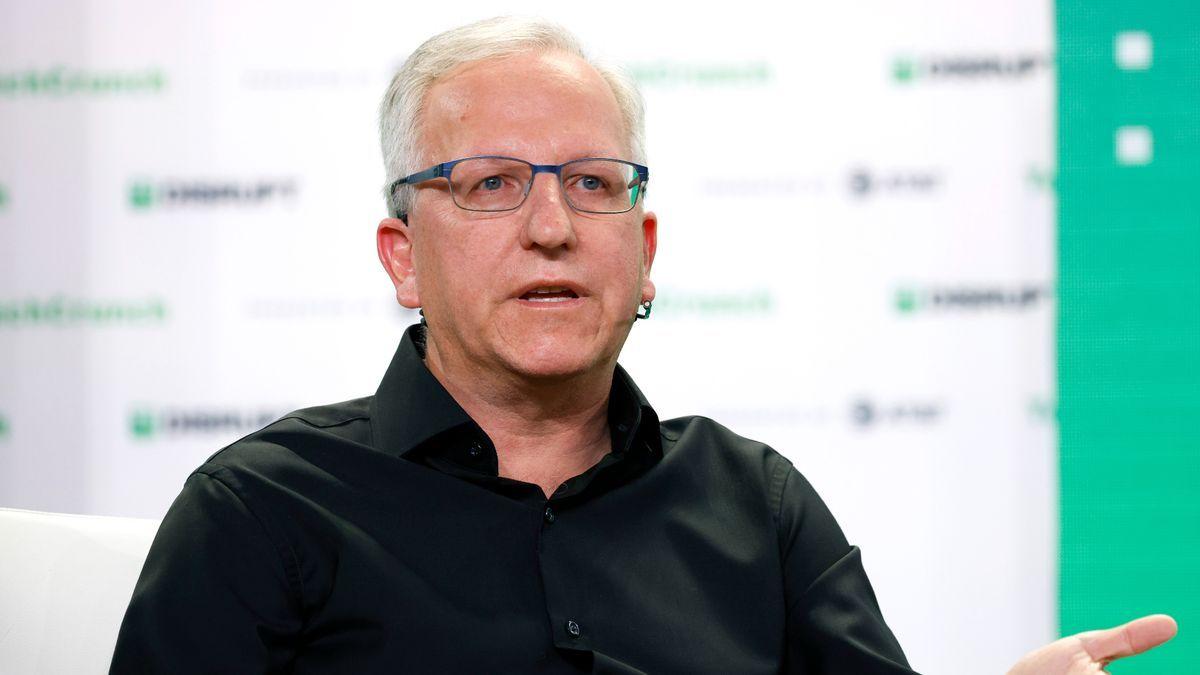
Netflix's $840K Bet on AI in Gaming Amid Industry Layoffs
03 Oct 2025•Business and Economy
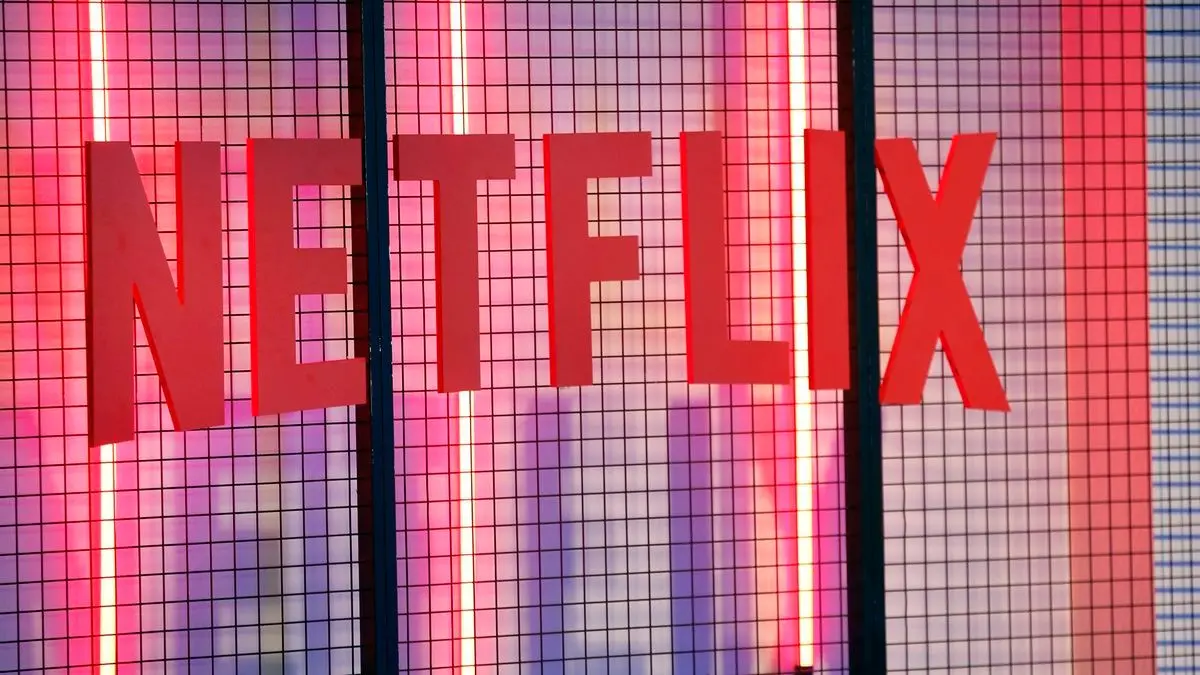
Netflix Pioneers Generative AI in Visual Effects for Original Content
18 Jul 2025•Technology
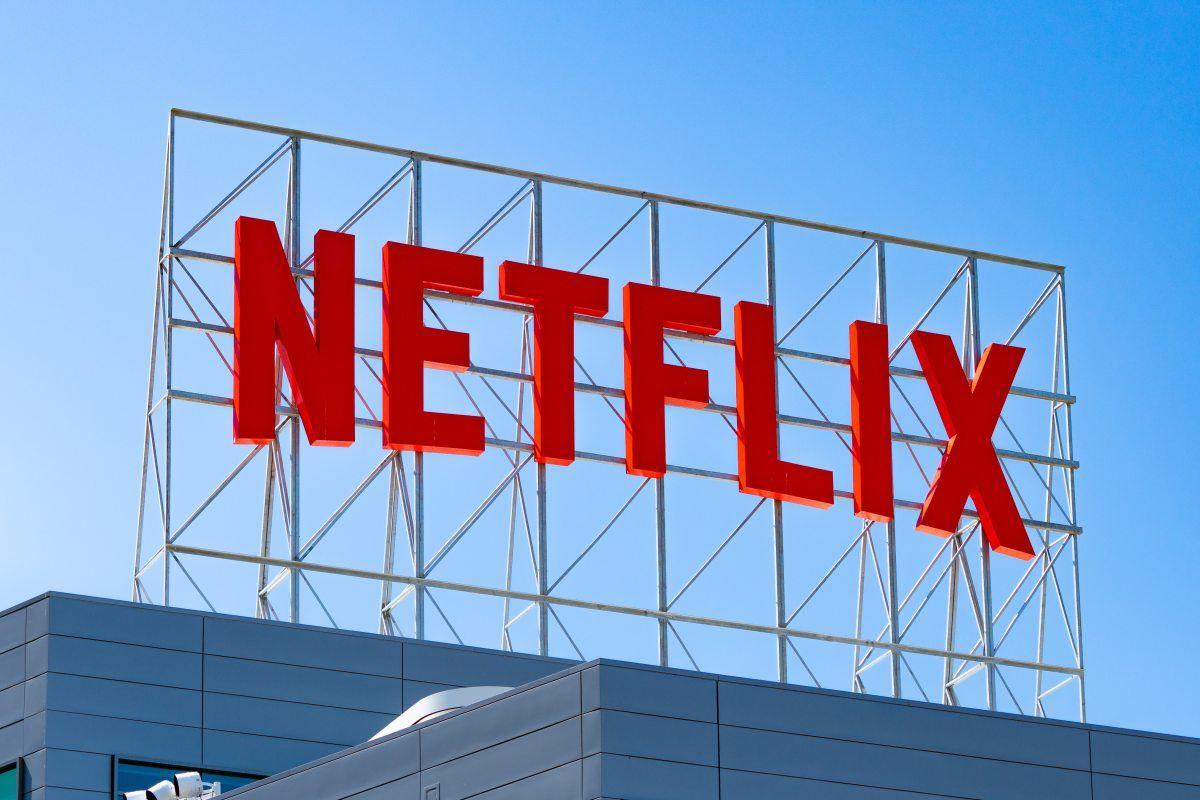
Recent Highlights
1
Anthropic releases Claude Opus 4.6 as AI model advances rattle software stocks and cybersecurity
Technology

2
French Police Raid X Office as Grok Investigation Expands to Include Holocaust Denial Claims
Policy and Regulation

3
Prima AI model reads brain MRI in seconds with 97.5% accuracy, transforming neurological diagnosis
Health

